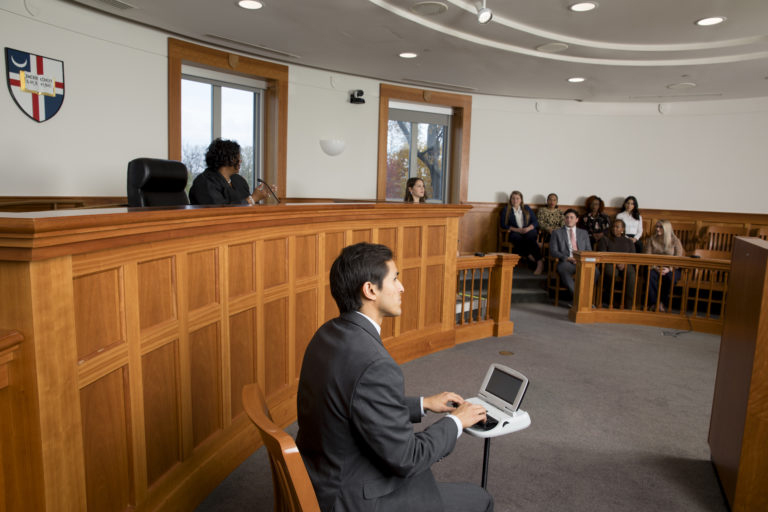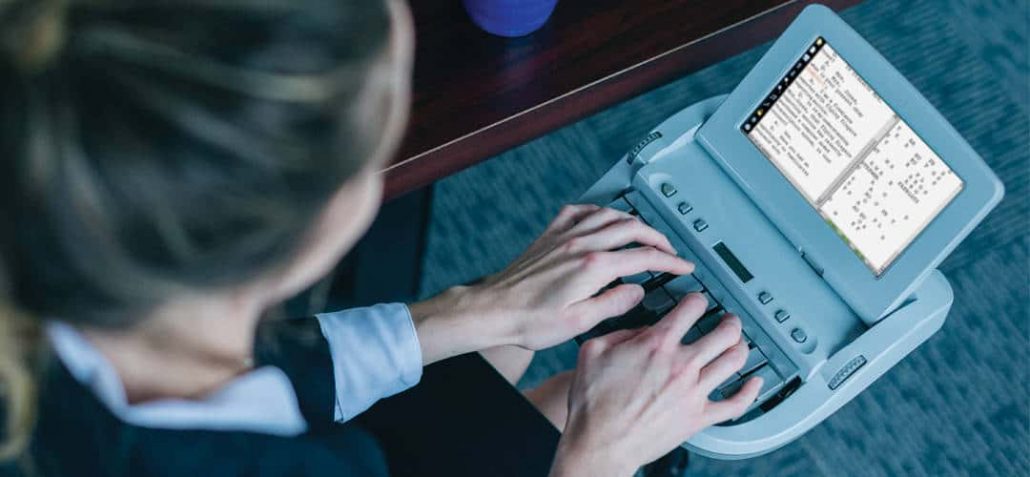The Benefits of Using Certified Court Reporting Professionals
The Benefits of Using Certified Court Reporting Professionals
Blog Article
Recognizing the Value of Court Reporting in Legal Solutions and Process
Court coverage plays a pivotal role in the legal landscape, serving as the foundation of precise documents in different lawful procedures. By giving verbatim transcripts, court press reporters make sure that every statement and debate is carefully captured, therefore securing the stability of the judicial process.
Function of Court Reporters

Along with transcription, stenotype reporter are typically entrusted with handling and maintaining the flow of procedures. They have to excel in lawful terminology and have an extensive understanding of courtroom protocols to guarantee that the document mirrors the context and nuances of the discussion. Their job might likewise prolong past standard courts, including administrative hearings, arbitrations, and various other lawful settings where documents is important.
Additionally, stenotype reporter might give real-time reporting, making it possible for prompt accessibility to transcripts during proceedings, which can be essential for the reliable management of justice. By ensuring that a specific record is maintained, court press reporters promote the honesty of the lawful procedure, promoting allures and serving as a crucial resource for lawyers in their pursuit of justice.
Relevance of Accuracy

The role of precision prolongs beyond mere transcription; it encompasses the ability to capture the subtleties of speech, consisting of tone, emphasis, and non-verbal cues, which can be important in recognizing the context of statements made. A precise document makes sure that all events involved-- attorneys, courts, and juries-- have accessibility to the exact same details, cultivating fairness and transparency in the judicial process.
Moreover, exact transcripts are important for the appellate procedure, where higher courts depend on them to evaluate reduced court choices. Inaccuracies can jeopardize the result of an allure, possibly impacting a celebration's rights and freedoms. Thus, the dedication to precision in court reporting is not simply a professional commitment yet a keystone of justice that promotes the guideline of law.
Types of Legal Process
Covering a wide array of legal contexts, court reporters are essential in various types of lawful procedures, each requiring unique approaches and skills. Amongst one of the most common types are civil lawsuits, criminal trials, and administrative hearings. In civil litigation, stenotype reporter catch motions, testaments, and depositions, ensuring that every information is documented precisely for potential allures or negotiations.
In criminal tests, the duty of stenotype reporter becomes even a lot more crucial, as they transcribe all elements of the procedures, consisting of court selections, witness testaments, and sentencing phases - Court Reporting. The precision and immediacy of these records are vital, given the potential repercussions for offenders and the stability of the judicial system
Management hearings, commonly performed by governmental firms, likewise depend on stenotype reporter to maintain main documents of process. These hearings can include disputes regarding governing compliance, employment concerns, or specialist licensing, demanding exact paperwork.
Additionally, specialized proceedings such as arbitration and mediation require court press reporters to catch the nuances of settlements and contracts. Each sort of legal action provides unique obstacles, emphasizing the relevance of experienced court reporters in supporting the honesty of the legal process.
Technology in Court Coverage
Developments in technology have actually transformed the area of court reporting, improving both performance and accuracy in the transcription process. Conventional techniques of hand-operated note-taking have been supplemented and, in many cases, changed by sophisticated digital devices that enhance workflows and boost precision (Court Reporting). Court press reporters click now utilize sophisticated steno makers equipped with real-time transcription capacities, permitting for immediate accessibility to a verbatim account of process
Additionally, the integration of speech acknowledgment software has even more changed the coverage landscape. This modern technology enables the automatic transcription of spoken words, dramatically lowering the time required for generating main documents. Furthermore, cloud-based platforms promote easy storage space and retrieval of transcripts, ensuring that attorneys can access important files from anywhere, at any moment.
Video conferencing tools have actually likewise become essential parts in remote depositions and hearings, helping court press reporters catch proceedings in real-time, no matter area. The mix of these technical advancements not only improves the precision of legal documentation yet likewise sustains an extra effective and versatile lawful process. As the area remains to advance, welcoming these innovations will certainly be critical in fulfilling the growing demands of the lawful market.
Ethical Factors To Consider in Coverage
The integration of technology in court coverage brings with it a set of moral considerations that experts have to browse meticulously. As court reporters increasingly employ electronic tools, problems surrounding accuracy, integrity, and privacy involve the forefront. Protecting delicate info is critical; reporters need to guarantee that any digital records are firmly stored and shared only with authorized individuals.
In addition, the accuracy of transcriptions is vital. Utilizing software for real-time coverage does not discharge court reporters from the obligation of making sure that the last item is exact. Honest obligations determine that any kind of errors need to be promptly corrected and interacted to relevant parties.

Finally, conformity with legal requirements and sector guidelines is essential. Stenotype reporter should remain educated concerning developing ethical standards to maintain the trust placed in them by the legal system. By dealing with these honest considerations, stenotype reporter can proceed to provide vital solutions in legal procedures while maintaining public confidence.
Final Thought
In verdict, court coverage plays a vital duty in the lawful system by guaranteeing exact and dependable paperwork of judicial proceedings. The meticulous job of court reporters supports the stability of the lawful procedure and supports the legal rights check this site out of people involved.
Court coverage plays a pivotal function in the legal landscape, offering as the backbone of exact documents in numerous lawful process.Court press reporters Read Full Article constantly play a crucial function in the judicial process by creating accurate, verbatim records of lawful procedures.Furthermore, accurate transcripts are crucial for the appellate process, where higher courts rely on them to assess reduced court decisions.Covering a wide selection of lawful contexts, court reporters are important in various kinds of legal process, each requiring distinct techniques and abilities. By resolving these moral considerations, court reporters can proceed to offer important solutions in legal proceedings while maintaining public self-confidence.
Report this page